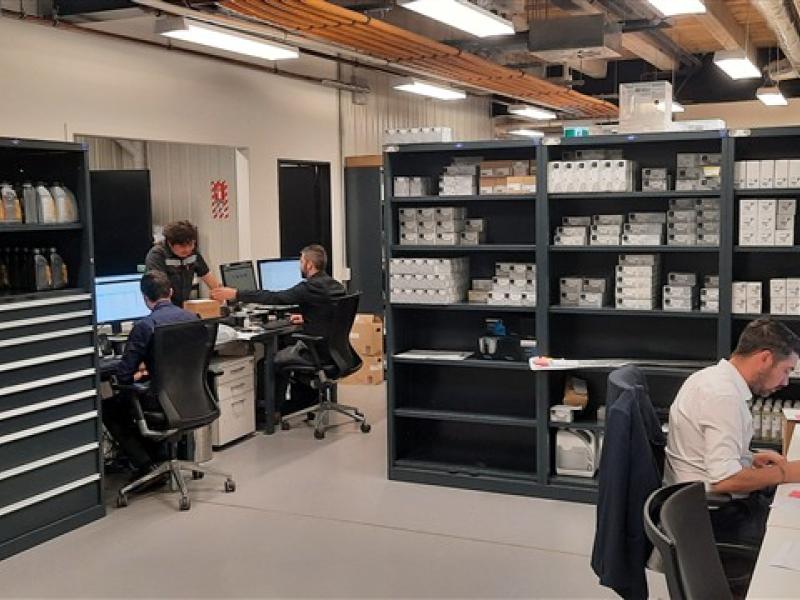The government has announced that the existing Secondary School NCEA qualification framework is to be replaced, eliminating many of the most criticised aspects of it.
In announcing the changes, Education Minister, The Hon Erica Stanford, said, “We are proposing to replace NCEA with new national qualifications that ensure young people have the knowledge and skills they need to succeed.
“We want to make it clearer, more consistent, and more useful for every child. Our proposal includes getting students in Year 11 to take English and Mathematics and sit a Foundational Skills Award (test). At Years 12, and 13 we will be replacing NCEA with a National Certificate of Education (Advanced at Year 13), which will have grades from A to E, and include internal and external exams.”
It is proposed that the changes will start in 2028 with the Foundational Award and will roll out as that years cohort moves through the system to be complete by 2030.
The Motor Trade Association (MTA) said that the announcement is an overdue step towards a more relevant, practical, and future-focused education system for young Kiwis.
“For too long, we’ve seen young people leave school without the skills or direction they need to thrive in industries like ours,” MTA Head of Advocacy James McDowall says.
“These reforms are an opportunity to give students real experience and qualifications in the trades and a head start in our industry – with MITO transitioning to industry ownership and leadership, they will be in good hands in the automotive industry.”
Under the proposed reforms, by the end of Year 12, students could already hold a Level 2 Certificate in trades like automotive – or be well on their way. These credits will count towards apprenticeships once they leave school or further study.
Students can mix vocational and academic subjects, and switch pathways if their interests change. This flexibility ensures students aren’t locked into one route too early, giving them time and experience to determine whether a particular trade is right for them.
“The new system sends a strong message: trades are not a fallback option,” James McDowall says.
“They are challenging, skilled professions that deserve equal recognition and respect.”
However, while the announcement is good news, Government needs to do its homework in two areas.
“Firstly, the Industry Standards Boards are going to need a lot more money if they’re going to help schools deliver this,” Dr McDowall says. “Presumably that will come from Budget 2026.
“Secondly, how is this all going to integrate with the other extensive reforms in the vocational education sector?
“We urge all employers and stakeholders to engage with the Government’s proposals and have their say.
“MTA will be submitting, so members are very welcome to send feedback to us directly.”
Skills Group, New Zealand’s largest private vocational training provider also welcomed the Government’s renewed focus on strengthening vocational pathways as part of the proposed NCEA reform.
Today’s announcement of a major overhaul of NCEA aims to create more robust and coherent vocational pathway options, ensuring that young people can pursue valued industry-related learning and develop the real-world skills demanded by industry.
Skills Group Chief Executive Rosanne Graham says this direction is timely and necessary.
“We strongly support the Government’s intention to rebalance the focus of the secondary qualifications system and to work with industry to develop better vocational pathways. For far too long, vocational options have been viewed as a lesser option. It’s time to recognise and elevate the value of vocational careers and better prepare all our young people for successful careers in essential industries,” says Rosanne.
Rosanne says the plans for industry involvement in the development of standards and programmes will help create smooth transitions for young people and instil core employability skills.
“We know that structured, purposeful learning – especially when delivered through partnerships with industry – sets people up for long-term success. Students are more engaged because their learning is relevant, and they are more employable through gaining real workplace knowledge and experience.”
The reforms are also a step forward in addressing the long-standing gap in clear pathways for students who are not headed to university – only 30 percent of school leavers go on to study for a degree.
Research shows that approximately 11 percent of students are becoming NEET (not in employment, education, or training) while 6 percent are going into apprenticeships straight from school. This highlights the pressing need for more structured vocational pathways to support a broader range of learners.
“All young people deserve clear and well supported pathways into meaningful careers, whether that’s in the trades or service industries. Vocational education must be visible, valued, and seamlessly integrated as part of the senior secondary school journey.”
Impact of replacing NCEA for the automotive industry
Impact of replacing NCEA for the automotive industry
Other
Thursday, 28 August 2025






